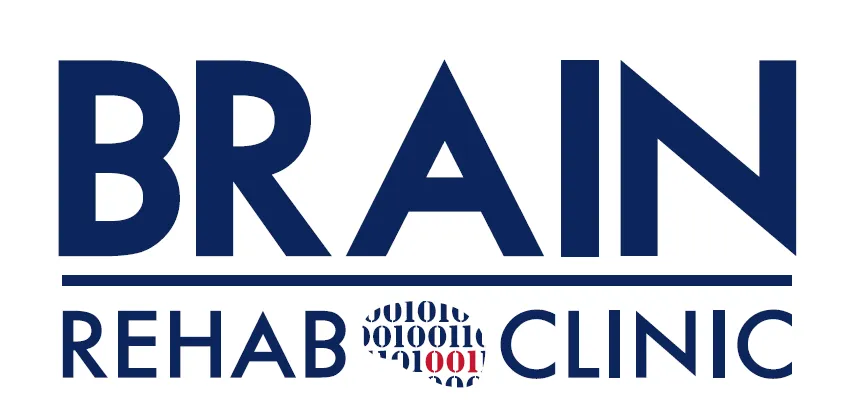
AMONG THE TOP FUNCTIONAL
NEUROLOGY CLINIC'S IN THE WORLD
AMONG THE TOP FUNCTIONAL NEUROLOGY CLINIC'S IN THE WORLD
You Can Live a Happy, Healthy Life
The Power Lies Within You
You Can Live a Happy, Healthy Life
The Power Lies Within You
thank you For Your Interest In Our Clinic!
We Are Different... Here's Why!👇
CONGRATULATIONS ON
SUCCESSFULLY COMPLETING THE
1st STEP TO FEELING BETTER!
Here you'll find answers to our most frequently asked questions as well as extensive information on what to expect & the therapies we provide. So please review everything & then fill out our brief Health Questionnaire that is provided at the end. Once that is submitted, a Team member will contact you within 24 hours to set up an appointment. We so look forward to working with you & can't wait for you to discover the health, happiness & quality of life that is possible when the brain is able to work correctly!
YOUR BRAIN IS YOUR GREATEST ASSET -
TOGETHER WE CAN GET IT FUNCTIONING OPTIMALLY!
OUR DOCTORS ARE TRULY EXPERTS
WITH DIFFICULT DIAGNOSES:
Insurance does not cover what we do. Our patients pay with their Health Savings Account cards or they pay in cash. Our Doctors look at conditions from a brain function perspective. Patients come and do a week-long intensive to start. On the first day, we do the diagnostic testing and our Doctors come up with a treatment plan once that is done. Every plan is widely different. But a safe average is $2,500.00 to $4,500.00. The variables are the type and amount of in-house therapy you will need, the number of follow-up visits you need with a Doctor, and then also the amount of time that the Doctor spends with you for those follow-up visits.
Check Out Brooke's Story!👇
What we do at Brain Rehab Clinic:
A neuron needs three things to survive: oxygen, glucose, and stimulation. Stimulation is important for neuronal health. MIT neuroscientists have found that increased neuronal stimulation can lead to increased connections in the brain, which is one of the key components of neural plasticity. Additionally, stimulation of neurons promotes the production of protein, which keeps cells healthy and functional. A healthy neuron has a negative transmembrane potential due to the intracellular protein levels and ion ratios. The neuronal elements which are responsible for healthy neuron function include sodium, potassium, chloride, and calcium ions. Neuronal excitation leads to mitochondrial activation and the development of intracellular proteins. A healthy neuron has many intracellular proteins, sufficient mitochondria for ATP (usable energy) production, and sufficient protein metabolic machinery for substance production, repair and other activities.
When neurons are not stimulated, they become unhealthy, which is partially due to the decrease in intracellular protein production. When a neuron lacks stimulation, its mitochondrial machinery is reduced, which leads to less intracellular protein, less ATP production, and decreased internal negativity. These changes bring the neuron closer to threshold, which increases the ease of exciting the neuron, but the neuron lacks the endurance to meet the demand.
Neuronal health is strongly dependent on stimulation, which is dependent upon a healthy balance of transmitter substances such as acetylcholine, GABA, serotonin, and dopamine.
In addition to a neuron’s need for stimulation and healthy levels of neurotransmitter, it also requires a steady supply of energy, which is usually supplied through glucose. In fact, the brain uses 20-25% of the body’s entire glucose load. A lack of constant and stable glucose delivery leads to neuronal degeneration.
Lastly, neurons need a constant supply of oxygen to maintain healthy mitochondrial machinery. Severe deprivation of oxygen leads to brain injury and death. Mild losses of oxygen also can potentially promote unhealthy neuronal function. For example, this has been observed in anemic patients. They are less able to circulate oxygen-rich blood through their bodies, and it is very common to observe systemically-low metabolic activity and brain endurance.
A neuron needs three things to survive: oxygen, glucose, and stimulation. Stimulation is important for neuronal health. MIT neuroscientists have found that increased neuronal stimulation can lead to increased connections in the brain, which is one of the key components of neural plasticity. Additionally, stimulation of neurons promotes the production of protein, which keeps cells healthy and functional. A healthy neuron has a negative transmembrane potential due to the intracellular protein levels and ion ratios. The neuronal elements which are responsible for healthy neuron function include sodium, potassium, chloride, and calcium ions. Neuronal excitation leads to mitochondrial activation and the development of intracellular proteins. A healthy neuron has many intracellular proteins, sufficient mitochondria for ATP (usable energy) production, and sufficient protein metabolic machinery for substance production, repair, and other activities.
When neurons are not stimulated, they become unhealthy, which is partially due to the decrease in intracellular protein production. When a neuron lacks stimulation, its mitochondrial machinery is reduced, which leads to a less intracellular protein, less ATP production, and decreased internal negativity. These changes bring the neuron closer to the threshold, which increases the ease of exciting the neuron, but the neuron lacks the endurance to meet the demand.
Neuronal health is strongly dependent on stimulation, which is dependent upon a healthy balance of transmitter substances such as acetylcholine, GABA, serotonin, and dopamine.
In addition to a neuron’s need for stimulation and healthy levels of neurotransmitter, it also requires a steady supply of energy, which is usually supplied through glucose. In fact, the brain uses 20-25% of the body’s entire glucose load. A lack of constant and stable glucose delivery leads to neuronal degeneration.
Lastly, neurons need a constant supply of oxygen to maintain healthy mitochondrial machinery. Severe deprivation of oxygen leads to brain injury and death. Mild losses of oxygen also can potentially promote unhealthy neuronal function. For example, this has been observed in anemic patients. They are less able to circulate oxygen-rich blood through their bodies, and it is very common to observe systemically-low metabolic activity and brain endurance.
THREE BASIC FUNDAMENTAL ACTIVITIES PRESENT
AND NECESSARY IN ALL NEURONS:
By utilizing the applications of functional neurology, we address three basic fundamental activities present and necessary in all neurons. These activities include:
#1. Adequate gaseous exchange, namely oxygen and carbon dioxide exchange. This includes blood flow and anoxic and ischemic conditions that may arise from the inadequate blood supply.
#2. Adequate nutritional supply including glucose, and a variety of necessary cofactors and essential compounds.
#3. Adequate and appropriate stimulation in the form of neurological communication, including both inhibition and activation of neurons via synaptic activation. Synaptic activation of a neuron results in the stimulation and production of immediate early genes and second messengers within the neuron. This stimulates the DNA transcription of appropriate genes and the eventual production of necessary cellular components such as proteins and neurotransmitters. In other words, we help restore the brain to proper function by providing neuronal stimulation, nutritional support, and needed oxygen.
At the Brain Rehab Clinic, we strongly believe in neuroplasticity. It is possible to strengthen effective pathways, weaken destructive pathways, and even build new neural pathways, connections, and networks within the brain. We utilize several different technological methods (described below) to better understand the baseline of how your brain is functioning now, and to indirectly measure how your brain changes as you progress through treatment. In short, we believe that these methods can help show the neuroplasticity of your brain in action as you progress through therapy.
By utilizing the applications of functional neurology, we address three basic fundamental activities present and necessary in all neurons. These activities include:
#1. Adequate gaseous exchange, namely oxygen and carbon dioxide exchange. This includes blood flow and anoxic and ischemic conditions that may arise from inadequate blood supply.
#2. Adequate nutritional supply including glucose, and a variety of necessary cofactors and essential compounds.
#3. Adequate and appropriate stimulation in the form of neurological communication, including both inhibition and activation of neurons via synaptic activation. Synaptic activation of a neuron results in the stimulation and production of immediate early genes and second messengers within the neuron. This stimulates the DNA transcription of appropriate genes and the eventual production of necessary cellular components such as proteins and neurotransmitters. In other words, we help restore the brain to proper function by providing neuronal stimulation, nutritional support, and needed oxygen.
At the Brain Rehab Clinic, we strongly believe in neuroplasticity. It is possible to strengthen effective pathways, weaken destructive pathways, and even build new neural pathways, connections, and networks within the brain. We utilize several different technological methods (described below) to better understand the baseline of how your brain is functioning now, and to indirectly measure how your brain changes as you progress through treatment. In short, we believe that these methods can help show the neuroplasticity of your brain in action as you progress through therapy.
Check Out Scharman's Story!👇
Check Out Emerson's Story!👇
DIAGNOSTIC TESTING #1:
COGNURO:
For this test, a set of goggles will be placed on your head completely covering your eyes. There will be a screen on the front of the goggles that will show different images while recording your eye movements. There will be several different portions of this test such as complete darkness, a circle moving up and down smoothly, stripes moving up and down the screen, and more. You will have an assistant with you the whole time giving you directions and letting you know what to expect to see on the screen. When you meet with the doctor, he will watch the videos of your eye movements with you and will point out to you which dysfunction he can see in your brain based on the movement of your eyes.
Cognuro is a test that may be redone each time you come to Brain Rehab Clinic before you see the doctor, depending on your specific findings.
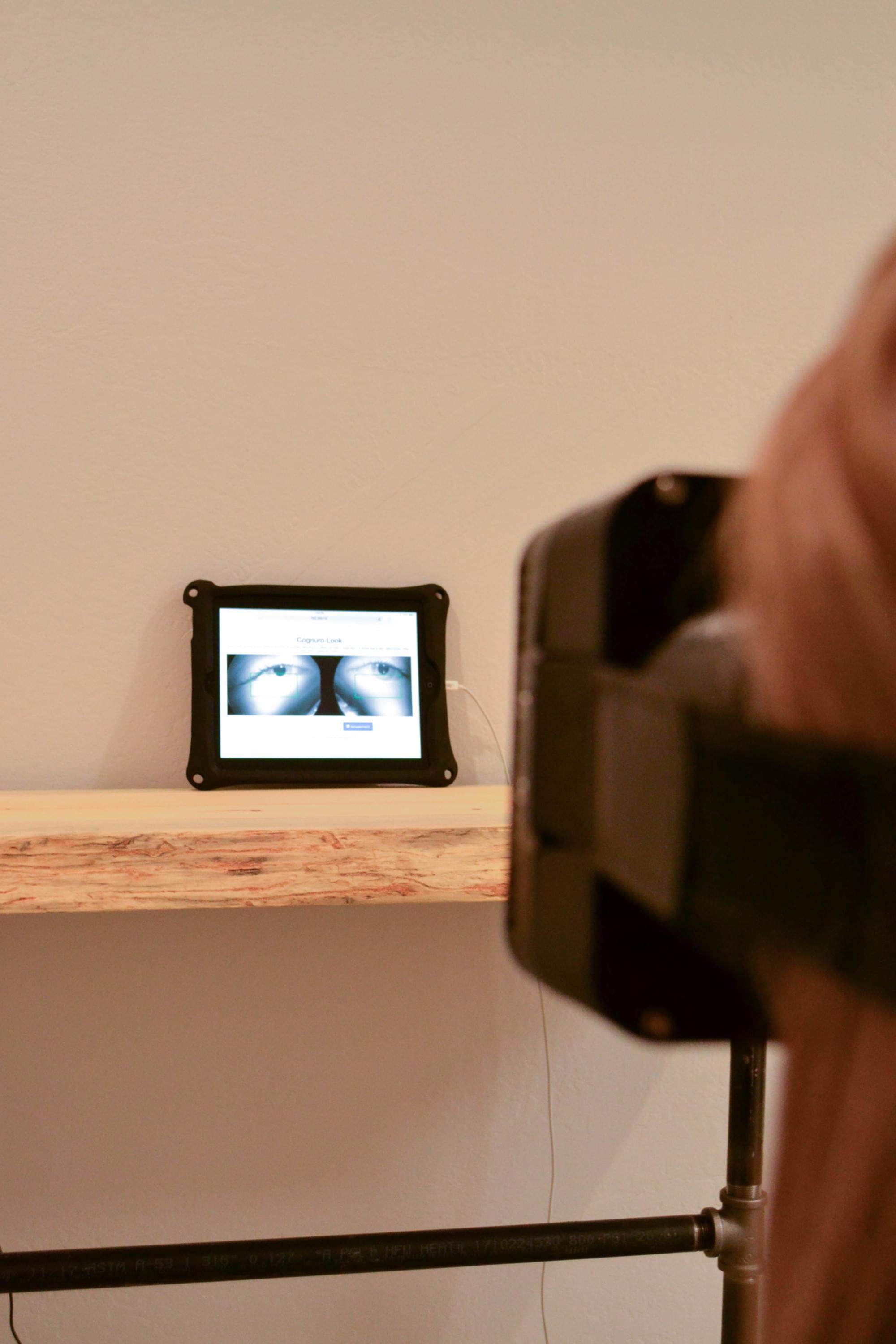

DIAGNOSTIC TESTING #2:
COMPUTERIZED POSTUROGRAPHY (CAPS):
In this diagnostic test, you are asked to balance on a platform. Noise-canceling headphones help you to balance without distraction. You will be asked to balance with your eyes open, closed, and with your head turned in various ways. Don’t worry - an assistant will be right behind you to make sure you don’t fall backward. When the doctor looks through the CAPS test results with you, he will be looking for your center of pressure and to see which directions you tend to lean. Basically, he is trying to see if your brain knows where your body is in space. Not knowing where you are in space can lead to a lot of problems, including anxiety. This is a great test to see the function of your cerebellum.
The CAPS test may be repeated each time you come in before you see the doctor depending on your findings.
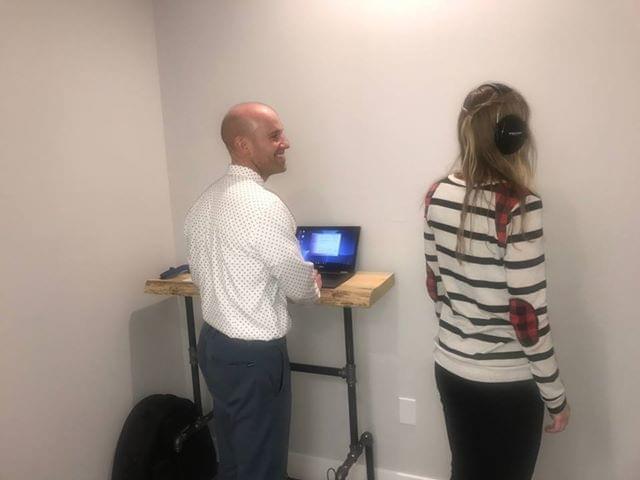
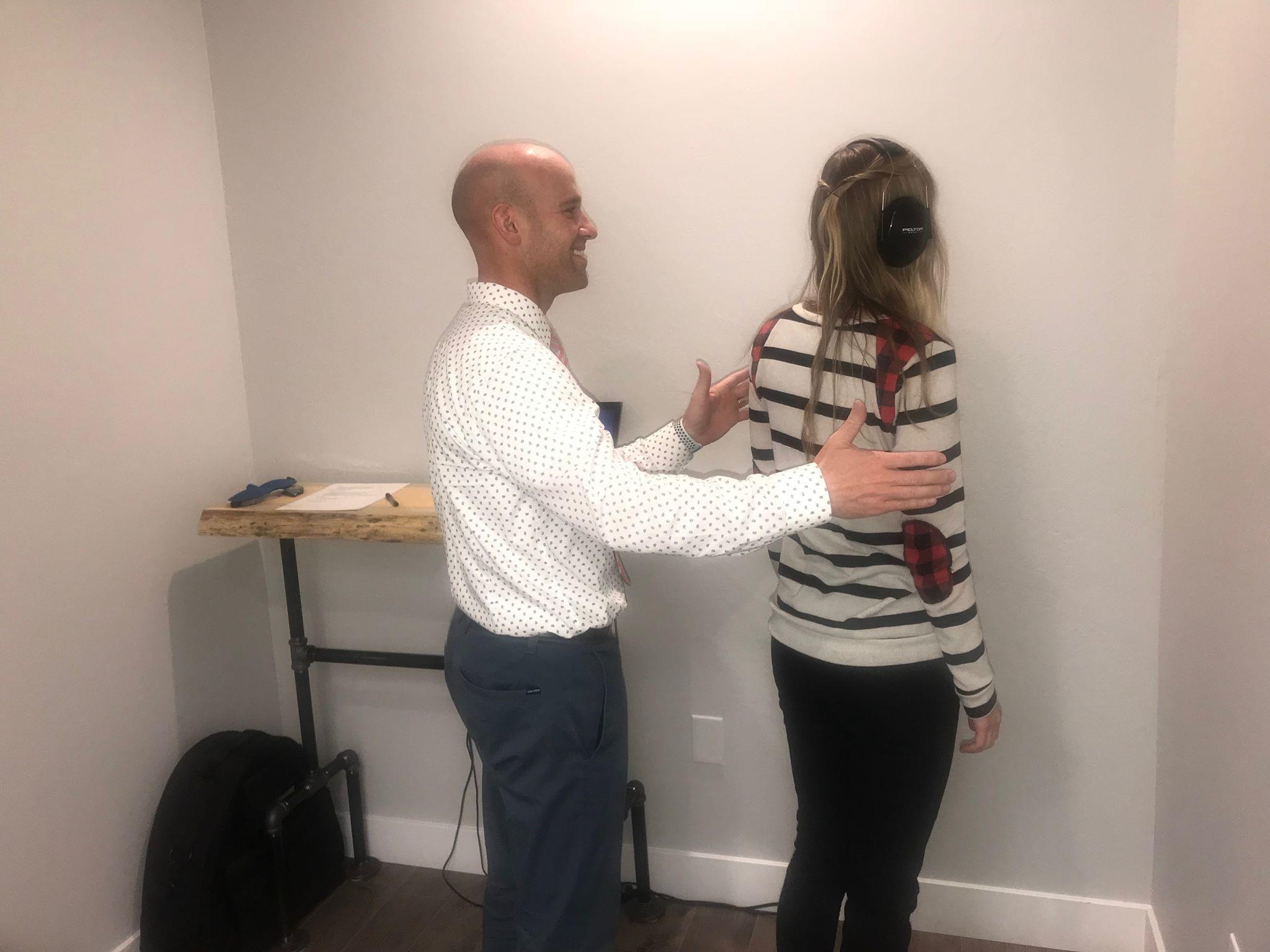
DIAGNOSTIC TESTING #3:
NEURO SENSORIMOTOR INTEGRATOR (NSI):
During this test, an assistant will have you stand or sit squarely in front of the touch-screen monitor and touch the moving visual targets which will appear on the screen. This technology measures your hand speed and accuracy. This gives the doctor important information regarding the function of your hand-eye coordination, visual-motor reaction time, and central-peripheral integration. Next, you will touch the visual target in connection with an auditory signal which will give the doctor insight into your visual-auditory integration.
The doctor will go through your results with you as you meet with him and will explain all the findings to you. You may repeat this test each time you come to the Brain Rehab Clinic, depending on your findings.
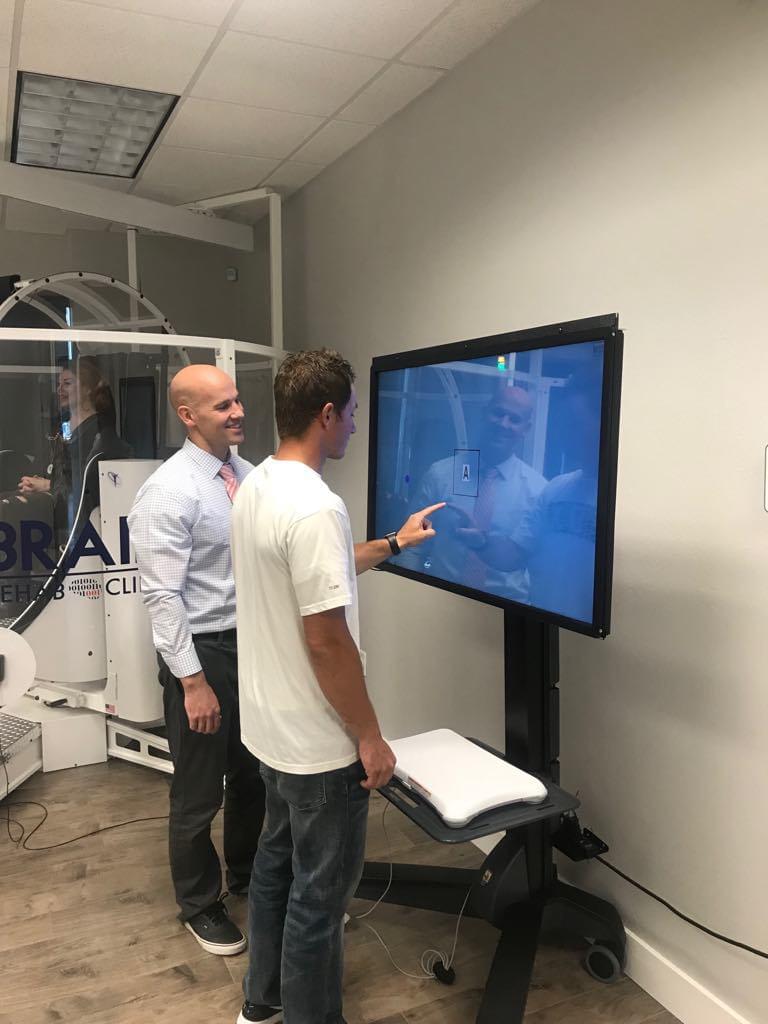

Before You Go...
WATCH OUR LATEST TV INTERVIEWS STARTING WITH FUNCTIONAL NEUROLOGY & THE DEVELOPING BRAIN:
Dr. Hatch, (who is also a member of ABC4 & CW30's Talk 365 TV Wellness Team of Experts), answers many of our FAQs in this TV Interview about Functional Neurology & The Developing Brain:
In This One...
DR. HATCH TALKS FUNCTIONAL NEUROLOGY & THE AGING BRAIN
In This One...
DR. HATCH TALKS FUNCTIONAL NEUROLOGY THE CONCUSSIVE BRAIN
Still Want A Little More Info?...
HERE'S HOW DR. HATCH HELPED HOST HOLLY LOVE
FROM AB4 & CW30'S TALK 365 TV:
HERE'S HOW WE HELPED HOST HOLLY LOVE
FROM AB4 & CW30'S
TALK 365 TV SHOW:
Check out this Extended TV Interview & Video Podcast Segment where Dr. Hatch reviews Talk 365 TV's Host Holly Love's test results & how with them, he can now explain her symptoms & offer a treatment plan for her which was two things prior to this point, no other doctors were able to do for her.

Visit Our Website @:
